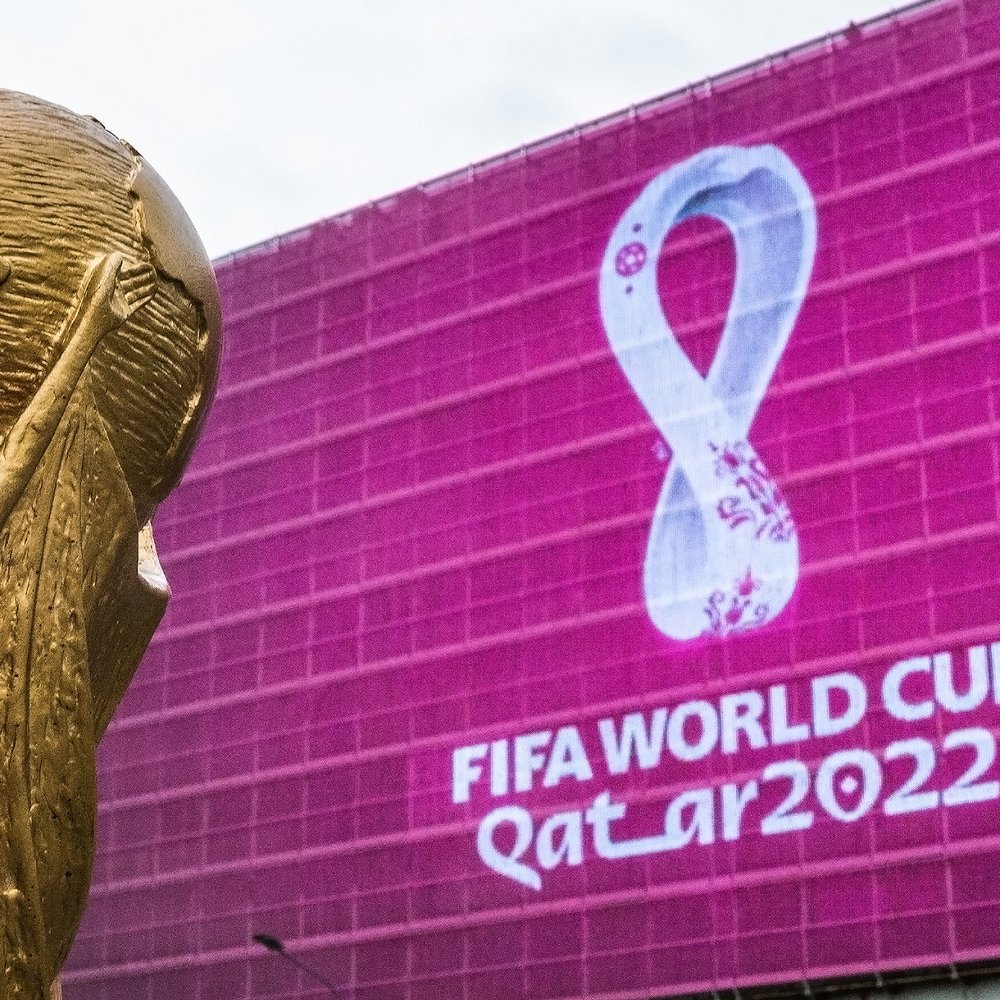Qatar 2022: 14 of 19 FIFA & World Cup sponsors fail to disclose information on migrant recruitment risks or due diligence; incl. co. responses

fifg, Shutterstock (purchased)
Six months from the Qatar World Cup kick-off we asked sponsors of the tournament – including FIFA sponsors, World Cup sponsors and regional sponsors – a set of questions regarding their human rights due diligence processes and policies relating to the recruitment of migrant workers to the region and in preparation of the tournament.
Some companies, like Coca-Cola or McDonald’s, already have operations in Qatar and the broader Gulf region; others may be hiring workers to support operations during the tournament itself, like AB-InBev’s Budweiser brand. Regardless, all companies have a responsibility to conduct human rights due diligence on their operations in a region where migrant workers face well-documented risks during recruitment and employment.
Only adidas, Budweiser, Coca-Cola, and Qatar Airways provided any information at all. FIFA partners – Wanda, Hyundai Kia Motor, Visa and QatarEnergy; Qatar World Cup sponsors – Hisense, Vivo, Mengniu, Crypto and BYJU’s; and, regional sponsors GWC, UPL, Ooredoo, The Look Company and Algorand all failed to provide any information at all.
In November 2022, McDonald's provided a response.
"It's disappointing that at a time when football teams and fans are beginning to sit up and take note of Qatar’s poor record on workers’ rights, sponsors continue to be largely disengaged...Companies which have been awarded sponsorship deals should, at an absolute minimum, recognise this comes with human rights responsibilities...In a region where migrant workers continue to face well-documented risks during recruitment and employment, FIFA and World Cup sponsors have a responsibility to operationalise human rights standards."Isobel Archer, BHRRC Gulf Programme Manager